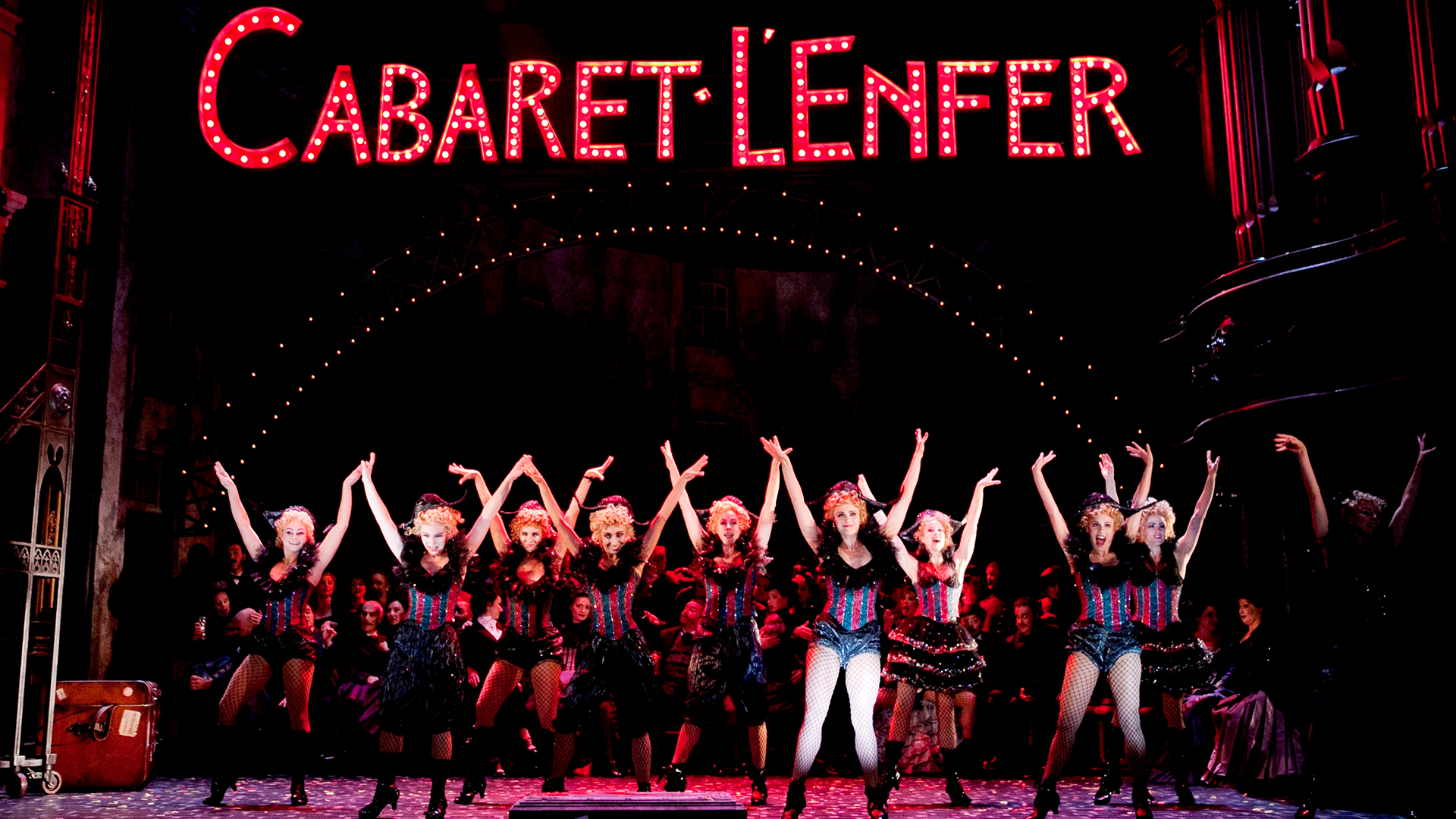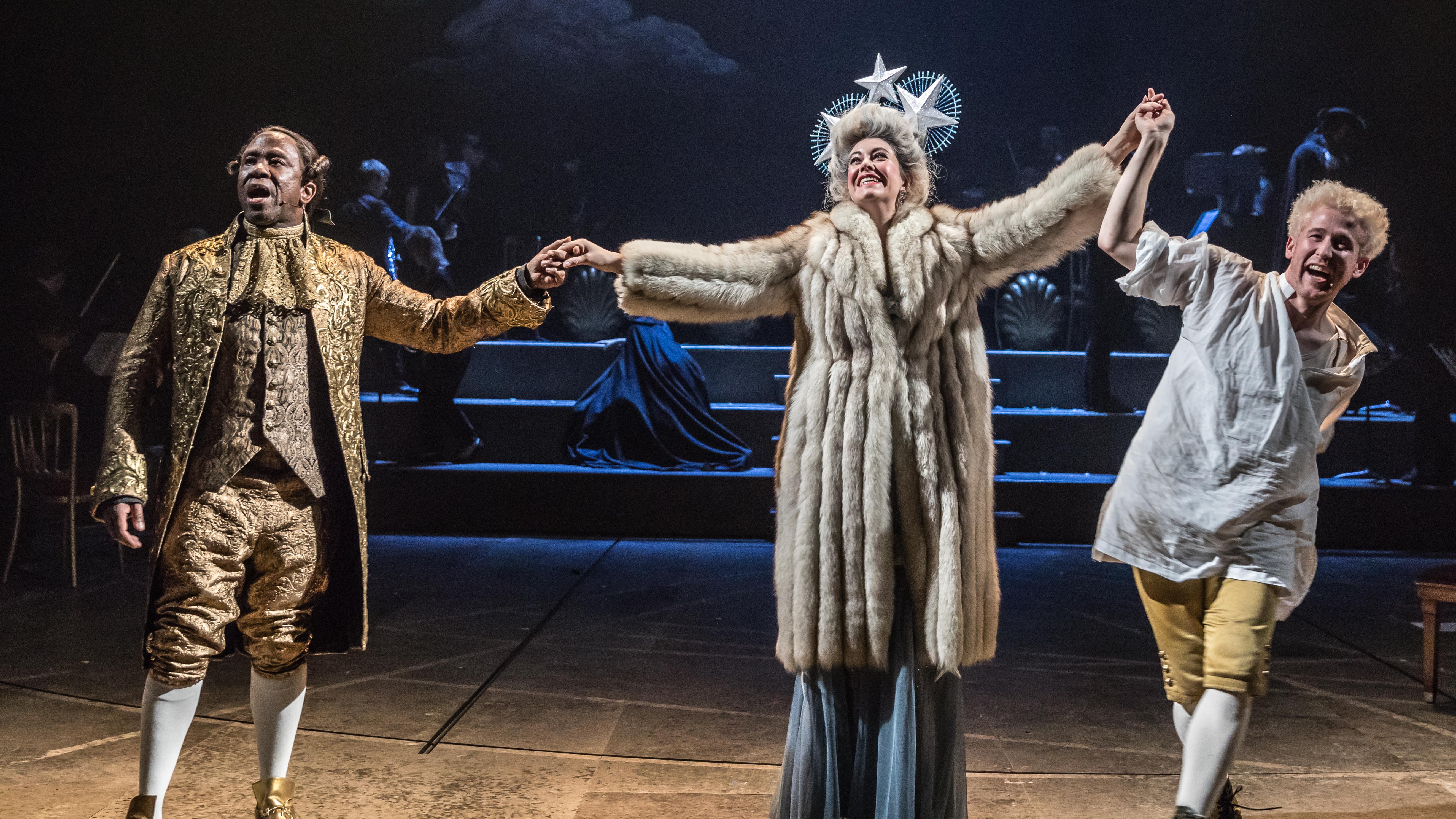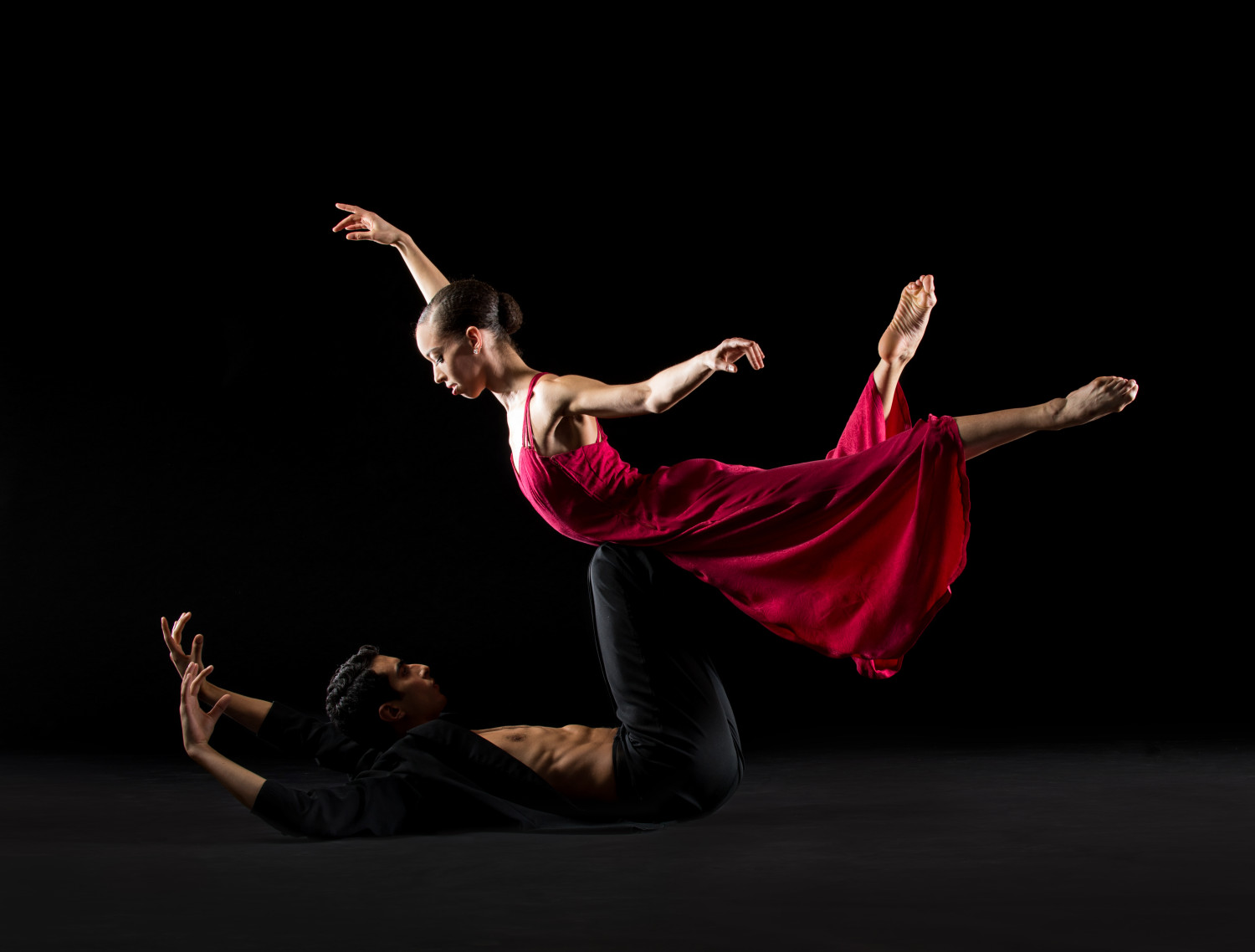VIEWPOINTS – Streaming Diary: Royal Opera’s superb FAUST, NT at Home ends sensationally with AMADEUS, and DTH does Nacho Duato proud
- By drediman
- July 26, 2020
- No Comments
As a heat wave hits New York, I found myself more than happy to indulge – indoors in my air conditioned apartment – in online performing arts content. Here are my thoughts on the latest crop of streaming adventures.

The Royal Opera’s production of Gounod’s “Faust”.
OPERA
Last week, I streamed the Royal Opera’s production of Gounod’s Faust (RECOMMENDED), which originally premiered in 1859 and is the very definition of grand opera (with its parade of arias, choral numbers, marches, jovial jigs, and orchestral dance suites, all brought to vivid life by maestro Dan Ettinger). Sir David McVicar’s superb 2004 staging of the opera is a huge improvement over Des MacAnuff’s overly conceptual production for the Metropolitan Opera. Mr. McVicar – undoubtedly one of the great opera directors of his generation – sticks to the opera’s original setting but gorgeously brings out the familiar legend’s sensuality and doesn’t shy away from its grotesque underbelly. Indeed, he succeeds sensationally in melding the sacred and the profane (not necessarily in that order), resulting in a progression of striking, seductive stage pictures. The current webcast, which captures a performance from just last year, features the ardent American tenor Michael Fabiano in the title role (beautifully acted) and a deviously delicious turn by bass-baritone Erwin Schrott as Méphistophélès. As the maiden in distress Marguerite, soprano Irina Lungu – a very last minute replacement for an ailing Diana Damrau – brought impressive gravitas and rock solid vocal stylings to her performance.

Lucian Msamati, Fleur de Bray, and Adam Gillen in the National Theatre’s production of “Amadeus” by Peter Shaffer.
THEATER
This past week marked the final week of the National Theatre’s NT at Home programming. Collectively, the wonderfully curated series exemplified why the London-based company is held in such high esteem the world over. The final offering was the National’s 2016 revival of the late Peter Shaffer’s award-winning play Amadeus (HIGHLY RECOMMENDED), which was famously translated to the big screen in 1984 by Milos Forman, to Oscar-winning effect. Mr. Shaffer’s play has always been a compelling character study of jealousy and obsession, and Lucian Msamati’s Salieri delivered just that (although I did have some reservations about Adam Gillen’s aggressively obnoxious performance as Mozart). However, what Michael Longhurst’s production brings to this familiar work is a newfound musical spectacle, complete with an interactive 21-strong orchestra (courtesy of Southbank Sinfonia) and six excellent classically trained singers. With music-making at the core of the production, the musical performances become much more than simply expository interludes – they become the heart and soul of the work, echoing the operatic intensity of the characters’ emotions.

Dance Theatre of Harlem dances Nacho Duato’s “Coming Together”.
DANCE
Apart from Paul Lightfoot and Sol León’s brilliantly-filmed farewell to the iconic Nederlands Dans Theater (see my review of their two final works for NDT here), I was also able to stream Dance Theatre of Harlm’s rendition of Nacho Duato’s 1991 ballet Coming Together (RECOMMENDED). It’s an apt title, given the sought after choreographer’s seeming attempt at bringing together various genres of dance – from jazz, to classical ballet, to ballroom dancing, and so forth. But unmistakable through it all is Mr. Duato’s distinctive ability to bring fluidity and a subtle Spanish flair to contemporary dance’s typically angular positions. The aerobic-like demands of the choreography never let up, proving to be a good match for Frederic Rzewski’s relentless, rhythmic score (which is punctuated with pointed spoken word by activist Sam Melville). In the streamed performance – which appears to be filmed from a Fall for Dance performance at New York City Center – the DTH dancers acquitted themselves admirably, dancing with agility and commitment. They brought character and enthusiasm throughout this crowd-pleasing 20-minute ensemble work.

 Copyright © 2025
Copyright © 2025
Leave a Reply